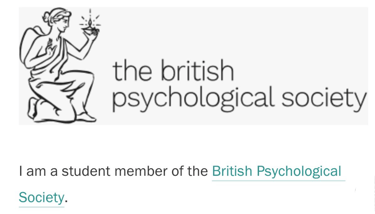Steady Brain Well-being: How Focus Transforms a Busy Mind: Calm, Clarity & Control
Gregorio Sosa
11/3/20252 min read


💬 “A calm mind isn’t something you find — it’s something you create.”
Have you ever noticed how your mind can switch from one thought to another in seconds?
You sit down to focus on one thing — maybe an email, a project, or even a conversation — and suddenly, you’re thinking about ten others.
That constant mental noise, that never-ending background chatter, is what many of my clients describe as mental overload.
And when it goes on for too long, it doesn’t just exhaust you — it quietly feeds anxiety, stress, and self-doubt.
🧠 Understanding the Busy Mind
Our brains are designed to protect us.
They’re constantly scanning for problems, replaying the past, and predicting the future — all in an effort to keep us safe.
But when that system becomes overactive, it can’t switch off.
It starts confusing thinking with doing, and before we know it, we’re mentally running marathons without ever leaving the chair.
That’s why so many people say,
“I’m exhausted, but I haven’t done anything.”
The truth is, overthinking is work — it’s just invisible.
And like any muscle, the mind needs moments of rest to stay strong.
🌿 The Power of Focus
In Solution-Focused Hypnotherapy, focus isn’t just about attention — it’s a way to retrain your brain.
When you shift your focus from problems to solutions, your brain releases dopamine and serotonin — the feel-good chemicals that restore calm, confidence, and motivation.
That doesn’t mean pretending everything is fine or ignoring what’s wrong.
It simply means choosing to focus on what helps you move forward, rather than what keeps you stuck.
Think of focus like sunlight.
Wherever you shine it, things grow.
If you focus on worry, anxiety grows.
If you focus on progress, your confidence will grow.
🎯 How Coaching Psychology Strengthens Focus
In Coaching Psychology, we work on setting mental filters — learning to direct attention with purpose.
It’s about training your mind to notice what’s useful instead of what’s overwhelming.
Simple questions can completely shift your state of mind:
“What’s one thing that went well today?”
“What can I do right now to make tomorrow easier?”
“If calm had a voice, what would it say to me right now?”
These small questions help the brain transition from threat mode to solution mode.
That’s where change really begins — not through pressure, but through awareness.
🌞 Try This: The Focus Reset
Next time your thoughts start spiralling, try this short practice:
Pause. Close your eyes or soften your gaze.
Breathe — in for 4 seconds, out for 6.
Ask yourself:
“What’s one small thing I can do now to feel more in control?”Please do it. Drink some water, stand up, send that message.
This isn’t about being perfect.
It’s about teaching your brain that it can come back to calm — again and again.
🌱 The Science of Calm
When we practise focus and mindfulness, we activate the parasympathetic nervous system — the body’s natural “rest and repair” response.
That lowers cortisol, slows your heart rate, and brings clarity.
Over time, your mind begins to associate stillness with safety, rather than boredom or guilt.
That’s how you start to reprogram your response to stress.
💬 Final Thought
You don’t have to silence your mind completely — you need to guide it.
Every time you redirect your focus, you’re planting a small seed of calm.
🌿 The calmer your mind, the more precise your direction.
And the clearer your direction, the steadier your life becomes.
Wellness
Empowering mental health through hypnotherapy and coaching.
Support
gregoriososa@gspsychotherapist.co.uk
+44 07534894225
© 2024. All rights reserved.
Private policies GDPR












